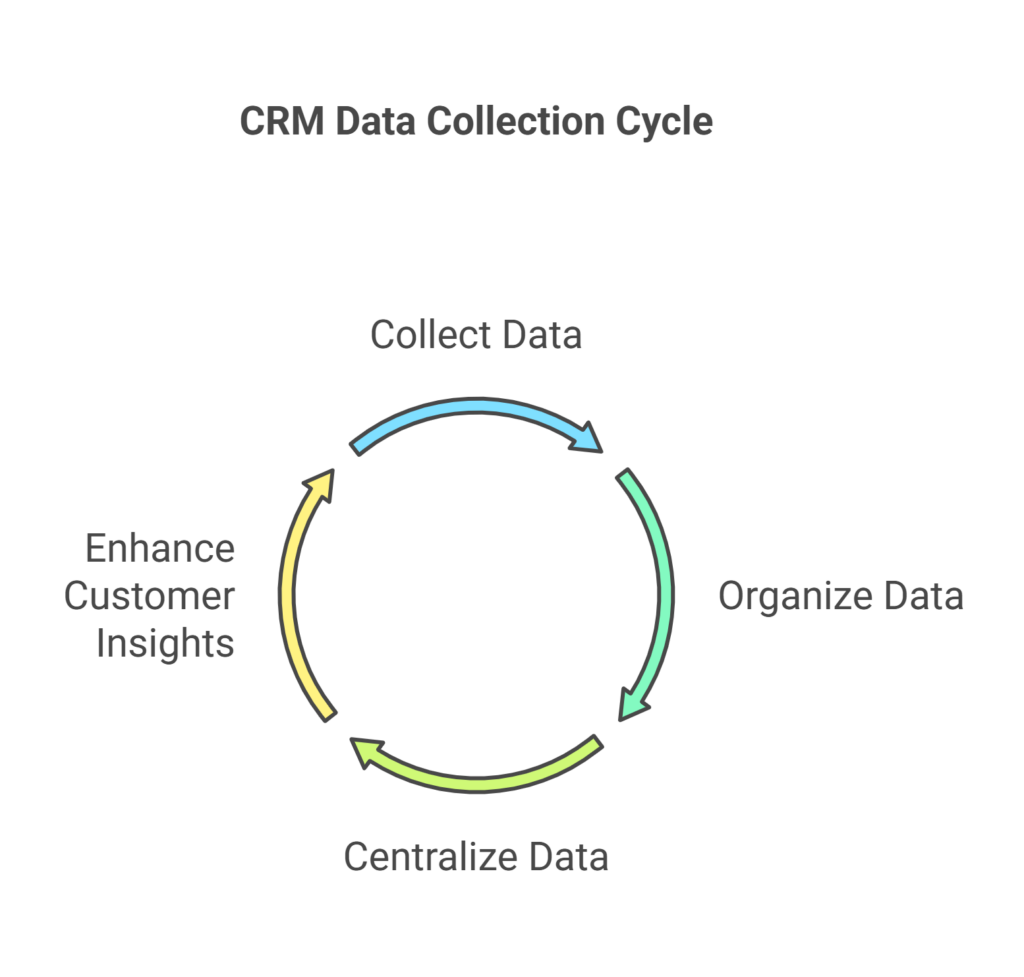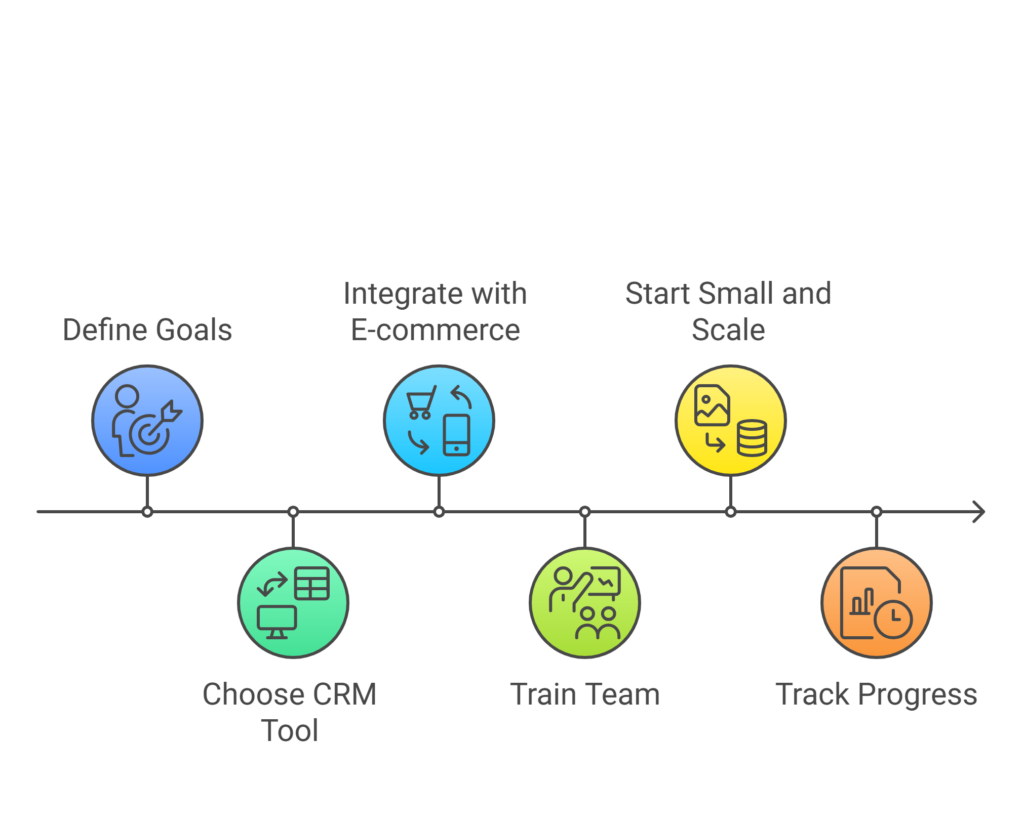What is CRM in E-commerce?
CRM, or Customer Relationship Management, is the backbone of any thriving e-commerce business.
It’s more than just software.
It’s a strategy for building stronger customer relationships.
It’s about understanding your customers’ needs, preferences, and behaviors.
And using that knowledge to provide a personalized experience that keeps them coming back for more.
In the cutthroat world of e-commerce, where competition is fierce, CRM is your unfair advantage.
It allows you to stand out from the crowd and cultivate a loyal customer base.
Why is CRM Essential for E-commerce Success?
Think of your e-commerce store as a physical shop.
You wouldn’t ignore a customer walking through the door, right?
You’d greet them, offer assistance, and remember their past purchases.
CRM in e-commerce allows you to do the same online.
It helps you track customer interactions across all channels.
From website visits and purchases to email opens and social media engagement.
This data provides a 360-degree view of each customer.
Enabling you to personalize your marketing efforts, improve customer service, and ultimately, boost sales.
- Increased Customer Loyalty: By understanding your customers’ needs and preferences, you can provide a personalized experience that fosters loyalty and encourages repeat purchases.
- Improved Customer Service: CRM empowers your customer service team with access to valuable customer information, allowing them to provide faster and more effective support.
How Does CRM Work in E-commerce?
CRM systems collect data from various sources.
Your website, social media platforms, email marketing campaigns, and even offline interactions.

This data is then organized into a centralized database.
Giving you a comprehensive view of each customer.
With this information at your fingertips, you can:
- Segment your audience: Group customers based on demographics, purchase history, or behavior. This allows you to tailor your marketing messages and offers to specific segments, increasing their effectiveness.
- Personalize marketing campaigns: Send targeted emails, offer personalized product recommendations, and create customized shopping experiences.
- Automate customer service: Use chatbots and automated email responses to provide instant support and resolve common issues quickly.
- Track customer interactions: Monitor customer activity across all channels to identify trends and patterns. This information can be used to improve your website, products, and marketing strategies.
Top CRM Tools for E-commerce
Choosing the right CRM tool is crucial for maximizing its benefits.
Here are a few top contenders:
- HubSpot: A popular all-in-one CRM platform offering a wide range of features, including marketing automation, sales tools, and customer service functionalities.
- Salesforce: A robust CRM solution ideal for larger e-commerce businesses with complex needs. It offers advanced features for sales management, customer service, and marketing automation.
- Zoho CRM: A user-friendly CRM platform that’s suitable for small and medium-sized e-commerce businesses. It offers a variety of features, including contact management, lead tracking, and email marketing.
- Klaviyo: A powerful CRM specifically designed for e-commerce businesses. It excels at email marketing automation and personalized messaging.
- BigCommerce: Though primarily an e-commerce platform, BigCommerce offers built-in CRM functionalities and integrates with other leading CRM tools.
How To Implement CRM in Your E-commerce Business

Implementing a CRM system can seem daunting.
But it doesn’t have to be.
Here’s a step-by-step guide to get you started:
- Define your goals: What do you want to achieve with CRM? Do you want to increase sales? Improve customer retention? Streamline customer service?
- Choose the right CRM tool: Consider your business size, budget, and specific needs when selecting a CRM platform.
- Integrate with your e-commerce platform: Ensure seamless data flow between your CRM and e-commerce platform.
- Train your team: Make sure your team understands how to use the CRM system effectively.
- Start small and scale: Begin with a few key features and gradually expand as your business grows.
- Track your progress: Monitor your CRM metrics to measure its effectiveness and make necessary adjustments.
Strategies To Maximize Your CRM ROI
CRM is an investment.
And like any investment, you want to see a return.
Here are some tips for maximizing your CRM ROI:
- Focus on data quality: Ensure your customer data is accurate and up-to-date. Inaccurate data can lead to ineffective marketing campaigns and poor customer service.
- Personalize your messaging: Use customer data to tailor your marketing messages and offers to individual preferences.
- Automate key processes: Automate repetitive tasks, such as email marketing and customer service responses, to free up your team’s time and improve efficiency.
- Provide excellent customer service: Use CRM to empower your customer service team with the information they need to provide fast and effective support.
- Continuously analyze and optimize: Regularly review your CRM metrics to identify areas for improvement and optimize your strategies.
The Future of CRM in E-commerce
CRM is constantly evolving.
New technologies and trends are shaping the future of customer relationship management.
Here are a few trends to watch:
- Artificial intelligence (AI): AI is being integrated into CRM systems to automate tasks, personalize interactions, and provide deeper insights into customer behavior.
- Omnichannel CRM: This approach focuses on providing a seamless customer experience across all channels, from website and email to social media and mobile apps.
- Personalization at scale: CRM is enabling businesses to personalize customer interactions at scale, delivering tailored experiences to thousands or even millions of customers.
Read also: Best CRM for Google Workspace (#12 Options Reviewed)
Conclusion
CRM in e-commerce is not a luxury.
It’s a necessity.
So, yes, building strong customer relationships is essential for survival and growth.
By implementing a well-planned CRM strategy, you can transform your e-commerce business.
You can increase customer loyalty, improve customer service, and drive explosive growth.
So, embrace the power of CRM.
And unlock the full potential of your e-commerce business.
Read also:

